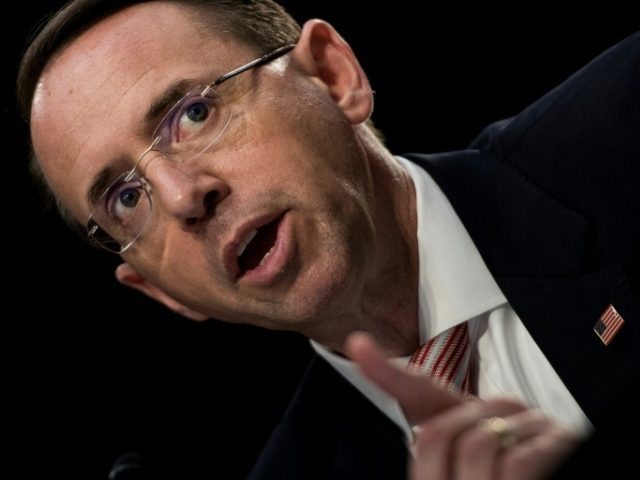Deputy Attorney General Rod Rosenstein is overseeing a revision of the Justice Department’s guidelines regarding how investigators can obtain records from members of the media, with a particular focus on leaks, according to The Hill’s John Solomon.
The proposed revision, in which Rosenstein assumed a larger role after Attorney General Jeff Sessions’ November departure, included a watered-down threshold for DOJ prosecutors to meet before subpoenaing a journalist’s records. The new guidelines, if approved, would allow the department to issue a subpoena without first notifying the reporter’s news organization of its intent to obtain documents, the report states.
Acting Attorney General Matthew Whitaker has reportedly voiced concerns about the plan in the last few weeks, worrying the rule changes could attract negative headlines as President Donald Trump is locked in negotiations to end the longest government shutdown in U.S. history. “After a lengthy period of turmoil and regular criticism from President Trump, DOJ has enjoyed a period of calm normalcy that has put employees’ focus back on their work and not the next tweet. Matt doesn’t want to disrupt that unless a strong legal case can be made,” one source told Solomon.
In August, Attorney General Jeff Sessions announced his agency was “reviewing” media subpoena policies for reporters who cite anonymous sources in leaking classified information. Sessions, flanked by Director of National Intelligence Dan Coats, said at the news conference that federal law enforcement agencies would ramp up efforts to stem the tide of information leaks emanating from within the Trump administration, revealing the DOJ had tripled the number of leak investigations since the president took office.
The government’s war on leaks has seen its share of high-profile causalities, including top FBI and Congressional officials.
Acting on the recommendation of the FBI’s Office of Professional Responsibility, Sessions fired the bureau’s deputy director Andrew McCabe, citing “unauthorized” disclosures to the reporters and lacking candor about it under oath. Federal prosecutors have impaneled a grand jury as part of an investigation into whether McCabe intentionally misled investigators about improperly leaking information to a reporter.
In October, James Wolfe, a former employee of the Senate Intelligence Committee, pleaded guilty to one count of making a false statement to the FBI “during the course of an investigation into the unlawful disclosure of classified national security information.”
In the past, the department has been reluctant to demand reporters reveal an anonymous source of disclosed classified information. However, when subpoenaed to testify, reporters face the possibility of being jailed for contempt of court if they refuse to identify a requested source.
New York Times reporter Judith Miller was jailed for 85 days in 2005 after refusing to divulge the source of a classified leak that revealed the identity of undercover CIA agent Valerie Plame, whose husband had drawn the ire of officials in former President George W. Bush’s administration.
Miller was released from federal prison only after her source, later confirmed as I. Lewis “Scooter” Libby, chief of staff to former Vice President Dick Cheney, identified himself. Libby was subsequently sentenced to federal prison for violating federal law by revealing classified information.
The United Press International contributed to this report.

COMMENTS
Please let us know if you're having issues with commenting.